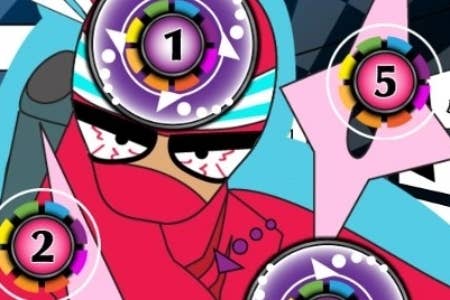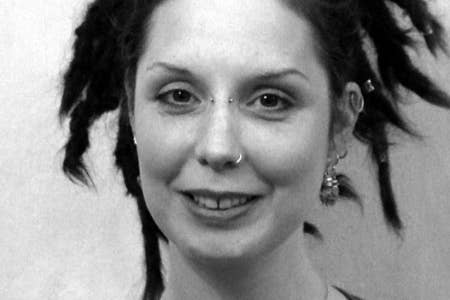Lady Shotgun: taking on childcare and capitalism
How one indie studio is killing crunch and sharing profits
You might not think anti-capitalism and motherhood are that compatible with this industry, a place where profit is everything and crunch is as inevitable as the sunrise. But one studio, the shiny new Lady Shotgun, wants to prove you wrong.
“I wouldn't be able to run a business along standard capitalist lines where my goal is to squeeze as much work for as little money out of the team, and to take the rest of the money for me,” explains Anna Marsh, founder of the studio.
"Because we're independent and there's just us we had that luxury to work on paper as long as we needed to"
That statement alone is enough to make Bobby Kotick feel a little faint, but Marsh means it. She founded Lady Shotgun in January, and the team has just released its first game, Buddha Finger, for mobile. It was created by a team working remotely, and on a profit share model.
“It's something that has helped up out because obviously we're a start-up and self-funded, so it's been a big help that people have worked for quite small upfront advances and then on a profit share, but it's something that I quite passionately believe in,” explains Marsh.
It also means the team aren't just marking time, for Marsh and the other developers it means they work on a task by task basis, leaving more flexibility for commitments like family.
“Instead of focusing on the hours they work we give them a task and it doesn't matter to us if it takes them one day or five days, what we're interested in is them completing a task .”

Meetings, which Marsh says were a time sink at the triple-A studios where she worked in the past (Creative Assembly and Eidos, as a designer) are now conducted over email, and rigorous pre-production meant they had a focused and strong idea of what would be needed to be done on the project and when.
“Usually in a traditional studio they want to crack on and be a bit faster and get something running on a screen because there are people in brand and marketing and management who want to see the game. But because we're independent and there's just us we had that luxury to work on paper as long as we needed to.”
And this flexibility is crucial to Marsh, because it was one of the inspirations for Lady Shotgun, and something she'd never imagined she'd have to think about.
“It's something that never occurred to me until I had my own child,” she admits.
“I'd never had a problem working in a big studio, that was all fine and I really enjoyed it. And then suddenly I didn't want to stop work, I didn't want to be a full time mother, but juggling the hours of a nursery with the hours you need to work is quite stressful.”
“It's the first and only problem that I faced as a woman in the industry, this huge surprise that I was no longer just the same as my male colleagues. And lots of my male colleagues had kids, but they all had wives or girlfriends that were happy to stay at home and look after them.”
Marsh is realistic about the way Lady Shotgun does things, the big studios aren't going to adopt these methods in the next year or so. But she's equally dubious about their ability to carry on the way they are.
“I think the big triple-A studios are almost becoming the niche stuff”
“I think the big triple-A studios are almost becoming the niche stuff,” she suggests.
“If you look at the numbers something like Angry Birds does compared to the numbers that a console title does and you look at the cost of a console title compared to the cost of making a mobile game, I wonder how long these kind of console games are going to be able to keep going the way they are.”
Next up (and once half-term is over) Lady Shotgun has a more narrative led game project and a children's game that they'd like to work on, and possibly looking for funding to back those.
"We'd really like to continue and do other things, because we've been having so much fun working the way that we're working," she says.
"We'd love to prove there's more than one way to make games, that you don't have to all go and sit in an office somewhere and sleep under your desk for three days and not shower."

